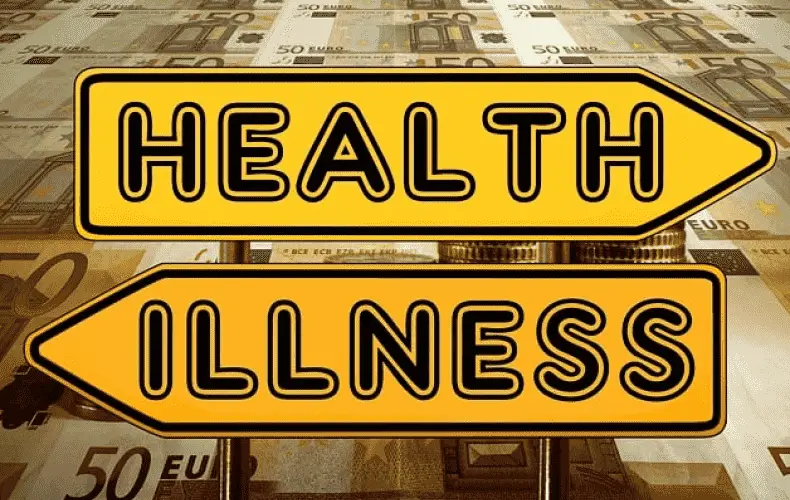
Germany Raises Health Insurance Income Limits: What This Means for Expats
Section: Health Insurance
Compare personalized quotes from leading German insurers
Finding the right private health insurance in Germany requires careful consideration of multiple factors. Each insurer offers distinct pricing models, coverage options, and benefits tailored to different needs and circumstances.
Our service provides direct access to quotes from leading insurers, offering you a clear, transparent comparison without intermediaries. Make an informed decision based on your income, employment status, and health profile.
Connect with trusted brokers who provide independent, personalized advice tailored to your unique situation and requirements.
Compare premiums, deductibles, and additional benefits like dental care, psychotherapy, and alternative treatments.
Whether you're an expatriate, freelancer, civil servant, or high-income employee, our platform helps you discover the ideal PKV plan with transparency and efficiency.
In Germany, health insurance is not just recommended—it's legally required for all residents, including expats, employees, freelancers, and students. The country operates a dual system with two primary types of health coverage: statutory public health insurance (Gesetzliche Krankenversicherung, GKV) and private health insurance (Private Krankenversicherung, PKV). More than 100 authorized insurers—known as Krankenkassen—offer these plans under strict government regulation.
Choosing between public and private health insurance depends on your employment status, income level, age, and long-term residency plans. Employees earning above the annual threshold (€73,800 in 2025), as well as self-employed professionals and certain international students, are eligible to opt out of GKV and join a private health insurer. Each system has distinct advantages: GKV is income-based and includes family members at no extra cost, while PKV offers customized benefits, faster access to specialists, and greater flexibility in coverage.
Navigating Germany’s health insurance landscape requires understanding these two systems and selecting the one that best matches your personal and financial situation. Whether you're relocating to Germany or reassessing your current coverage, making the right choice between GKV and PKV is essential to ensuring long-term health protection and financial security.
(Gesetzliche Krankenversicherung, GKV)
Gesetzliche Krankenversicherung is Germany’s state-regulated health insurance system, covering the majority of residents. It operates on a solidarity-based model, where contributions are income-dependent rather than risk-based, making it especially beneficial for employees with average or lower incomes. Monthly premiums are typically around 14.6% of gross salary, split between employer and employee, and include free coverage for non-working dependents such as children and spouses.
GKV provides access to a wide network of doctors, hospitals, and basic healthcare services, including preventive care, prescription medications, maternity benefits, and rehabilitation. It is mandatory for most employees earning below the annual income threshold (€73,800 in 2025), and is often the default choice for new residents.
Although waiting times for specialist treatment can be longer than in private schemes, GKV ensures comprehensive, regulated healthcare without exclusions for pre-existing conditions. It remains a reliable and affordable option for millions of residents in Germany.
(Private Krankenversicherung, PKV)
Private Krankenversicherung is an alternative to Germany’s public system, offering more personalized healthcare benefits and often faster access to specialists. Unlike the income-based GKV model, PKV premiums are calculated based on individual risk factors such as age, health history, and selected coverage. It is available to employees earning above the annual threshold (€73,800 in 2025), as well as to self-employed individuals, freelancers, civil servants, and certain international students.
PKV plans offer a wide range of tailored benefits, including private hospital rooms, direct access to top specialists, dental and optical enhancements, and extended international coverage. Each family member requires a separate policy, so it may be more cost-effective for singles and high earners than for large families.
Private insurers in Germany are tightly regulated and provide high-quality service, often with English-speaking support. While switching back to public insurance can be difficult, PKV remains an attractive option for those seeking greater control over their healthcare choices and willing to invest in higher-tier services.
Private Health Insurance (PKV) is available to individuals earning above €73,800 annually (as of 2025). Those earning less are required to remain in the Public Health Insurance system (GKV). The most noticeable difference is the typically higher service level offered by PKV providers.
Public Health Insurance (GKV) is often the better choice for families, particularly if you are married and your spouse has little or no income, or if you have children. One of its key advantages is that non-earning dependents—such as your partner or children—are included in your policy at no additional cost. Contributions to GKV are income-based: the standard rate is 14.6% of your gross salary, plus an additional average surcharge of around 1.6% for specific health funds. These costs are shared equally between you and your employer. If you opt for Private Health Insurance (PKV), your employer will still cover 50% of your monthly premium, up to a legal maximum.
Note that not all hospitals and doctors are covered under the GKV system, so it's essential to verify coverage before receiving treatment. Both PKV and GKV provide coverage for overseas treatment, but it's crucial to check whether your destination country is included. Generally, PKV offers more extensive international medical coverage.
"Switching to private health insurance in Germany was a big decision. Thanks to your advice and clarity, I felt confident throughout the process. I'm now paying less and getting better service."
— Thomas R., Software Engineer from Munich
"I had no idea where to begin with German insurance, but this team made it so straightforward. They understood my needs as an expat engineer and found the perfect solution for me. The bureaucracy was handled seamlessly."
— Sarah L., Freelancer from Berlin
"Efficient, knowledgeable, and professional. This was exactly what I needed to get covered quickly after relocating for a new job."
— David M., Embedded Systems Engineer from the UK
Now that you’ve gained a solid overview of Germany’s health insurance landscape, it’s time to take the next steps toward finding the best private health insurance plan for your unique situation. Below, we’ve provided links to in-depth guides on both statutory (GKV) and private health insurance (PKV) in Germany. These resources will help you understand the key differences, benefits, and legal requirements associated with each system.
Understanding the nuances between Public (GKV) and Private (PKV) health insurance is essential for securing the best coverage for you and your family. By carefully considering your eligibility, lifestyle, and financial goals, you can confidently select the plan that offers both peace of mind and comprehensive care.
Don’t risk costly mistakes or inadequate coverage. Act now to secure a health insurance plan that aligns perfectly with your budget and lifestyle, ensuring the protection and support you deserve.
As part of The Eye Newspapers, we are dedicated to assisting you every step of the way, ensuring you receive the best possible service in English. You'll be surprised by how simple and straightforward our partners make the process for expatriates like you.
Section: Health Insurance
Section: Health Insurance
Section: Health Insurance
Section: Health Insurance
Section: Health Insurance
Section: Health Insurance
Section: Health Insurance
Section: Health Insurance
Section: Health Insurance
Section: Health Insurance
Germany is famous for its medical expertise and extensive number of hospitals and clinics. See this comprehensive directory of hospitals and clinics across the country, complete with links to their websites, addresses, contact info, and specializations/services.
Join us at the Kunstraum in der Au for the exhibition titled ,,Ereignis: Erzählung" by Christoph Scheuerecker, focusing on the captivating world of bees. This exhibition invites visitors to explore the intricate relationship between bees and their environment through various artistic expressions,...









